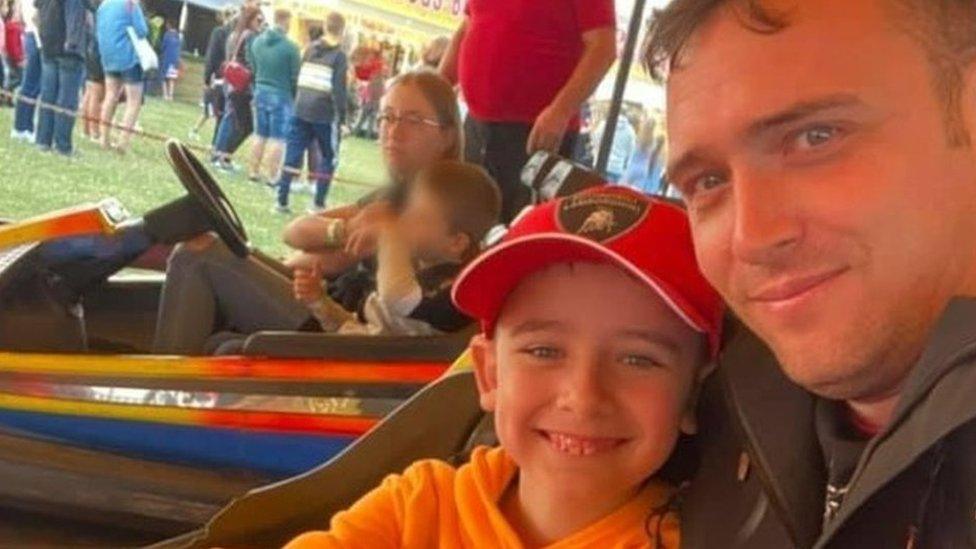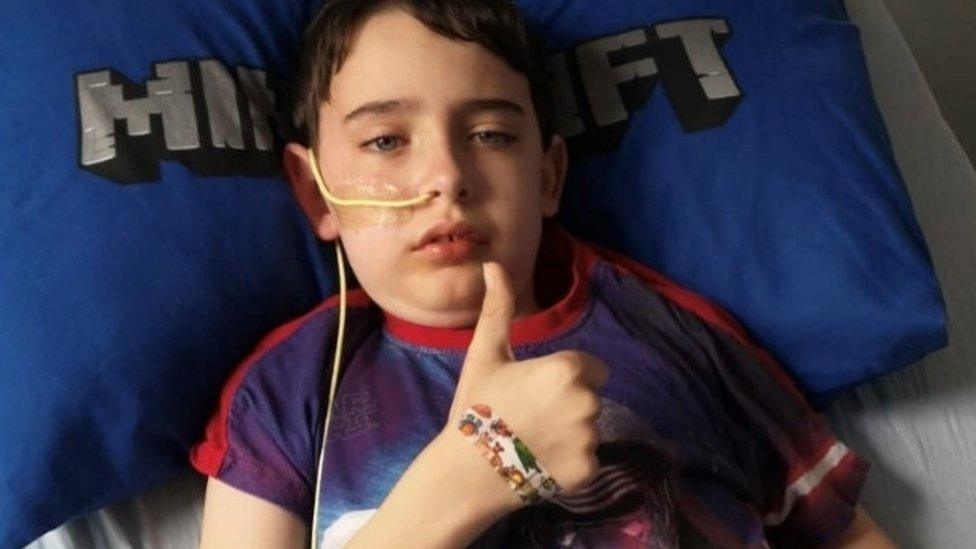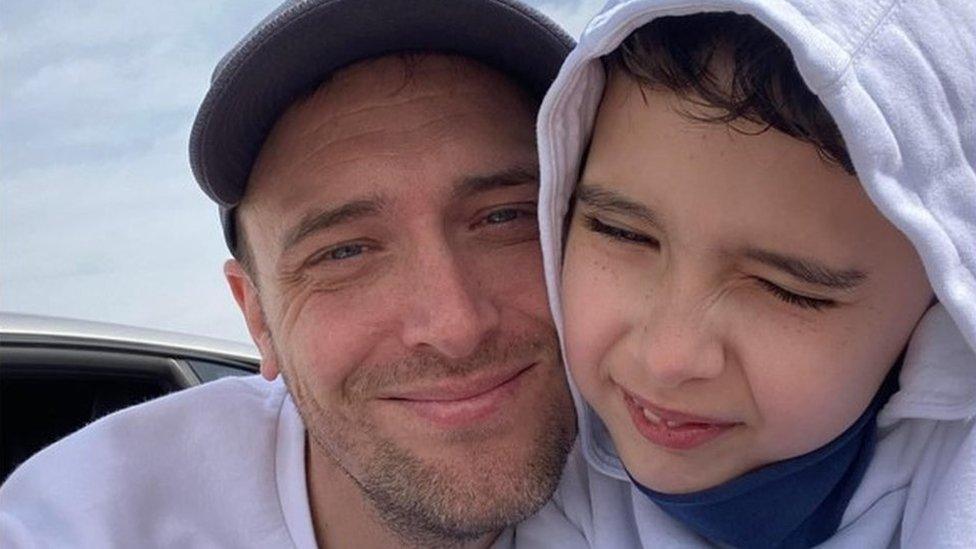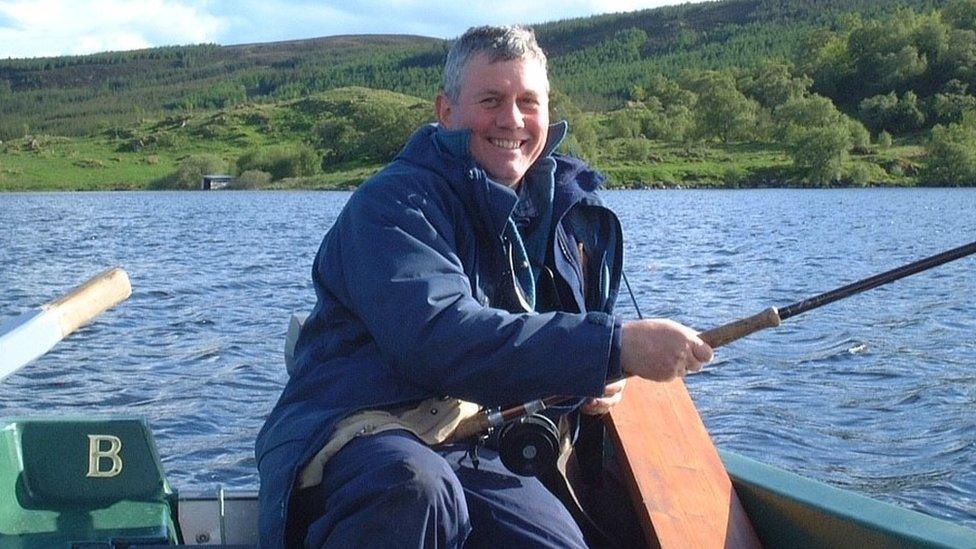Family's hopes for US brain tumour treatment trial
- Published

Lucas was diagnosed a week before his 10th birthday
The family of a 10-year-old boy who was told he had months to live is hoping he can become one of the first patients in the world to access a new treatment.
Lucas was diagnosed with a cancerous brain tumour a week before his 10th birthday in April.
His father Jamie, from Oakham, Rutland, said his son had been accepted for a trial of a new treatment in the US.
Charity Funding Neuro said it hoped to bring similar trials to the UK.
Lucas was diagnosed with Diffuse Intrinsic Pontine Glioma (DIPG), following treatment at Nottingham's Queen's Medical Centre and the Leicester Royal Infirmary.

Lucas has been accepted on to the US trial
His father Jamie said Finding Neuro - a charity that raises funds for clinical trials focusing on neurological conditions - had put the family in touch with the US drug company behind the trial following the diagnosis.
"We were told by consultants in Nottingham he would die two to six months after being treated with radiotherapy," he said.
"You can imagine what that did to us. We know what the prognosis is if we don't do anything.
"The doctors in the US want us to do another MRI scan in three weeks to check the tumour has not spread to his spine.
"Hopefully, if the results show it hasn't, we will get the go-ahead to travel."
The trial, which will take place at a hospital in Washington, uses a drug which contains substances that attract the cancer cells.
It is hoped by focusing certain frequencies of ultrasound on the cancer, it will kill the cells.
The trial will take up to three months and, although it is funded by the drugs company, the family is raising funds to cover living costs and other medical expenses while they are in the US.

The family is raising funds to support their costs while in the US
As well as online fundraising, they are being supported by events such as Newark's Retro Festival, which is taking place on Saturday.
David Mulligan, CEO of Finding Neuro, said: "Trials are just that - they are trying to see if this treatment works or not.
"Everybody is very positive about it, but we won't know what will happen. Right now it is giving the family hope.
"As soon as Lucas can get over there, they will treat him as quickly as they can."
He added the charity was working to try to get approval for a DIPG trial in the UK.
Sophie Wilne, Lucas's consultant at Nottingham University Hospitals NHS Trust - where Lucas has just finished a course of radiotherapy - said: "DIPG is an aggressive and sadly incurable tumour.
"Around 50 children a year will be diagnosed with it in the UK and research is essential to improve outcomes."

Follow BBC East Midlands on Facebook, external, on Twitter, external, or on Instagram, external. Send your story ideas to eastmidsnews@bbc.co.uk, external.
Related topics
- Published23 June 2021
